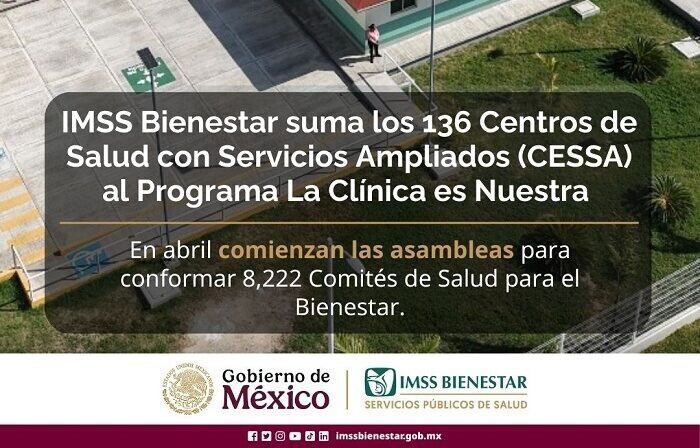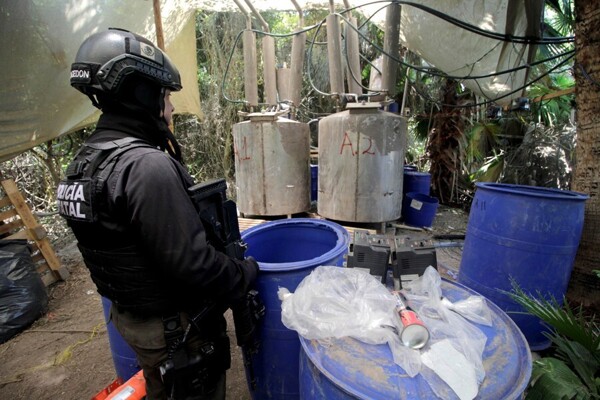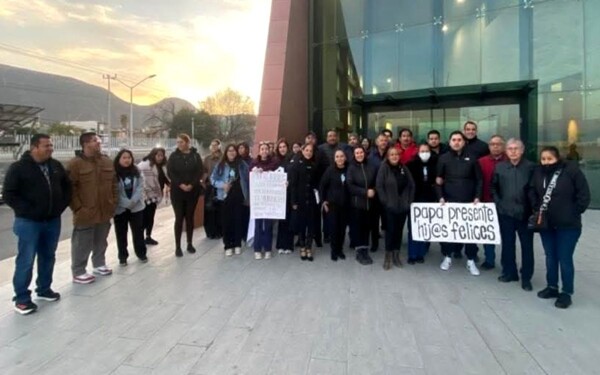
The Mexican Institute of Social Security Well-being announced the incorporation of 136 Health Centers with Expanded Services (CESSA) into the program The Clinic is Ours (LACEN), with an investment of 6.3 billion pesos. This program aims to strengthen the first level of care and ensure access to medical services in vulnerable communities.
The CESSA represent a cutting-edge clinic model designed to provide comprehensive care to the population. In 2024, two new CESSA were inaugurated: Santiago Astata in Oaxaca and Tlacoachistlahuaca in Guerrero, reinforcing access to medical services in these regions.
The program The Clinic is Ours was launched in 2024 in collaboration with the Ministry of Well-being, aiming to strengthen the first level of care and guarantee medical services for the most needy population in rural and marginalized areas.
In April 2025, the process for the establishment of 8,222 Health Committees for Well-being will begin, which will include the 136 CESSA. Resources will be allocated according to the number of consulting rooms and needs of each clinic, with amounts ranging from 370 thousand to 1 million 100 thousand pesos.
Alejandro Svarch Pérez highlighted that in 2024, 6.3 billion pesos were invested in more than 44,000 infrastructure, furniture and equipment actions, benefiting 11,816 clinics in 2,202 municipalities. He emphasized that this model allows for the decongestion of demand in second-level hospitals and promotes more complete clinics that adjust to community needs.
The 136 CESSA are distributed across various entities, capable of serving up to 30,000 people, equipped with at least six general medicine consulting rooms and complementary services such as laboratory, X-rays, ultrasounds, obstetric and prenatal care, delivery room, emergencies, and trunk specialty consultations.
With initiatives like this, IMSS Well-being is moving towards a model of primary health care that promotes territorial management and community participation.













